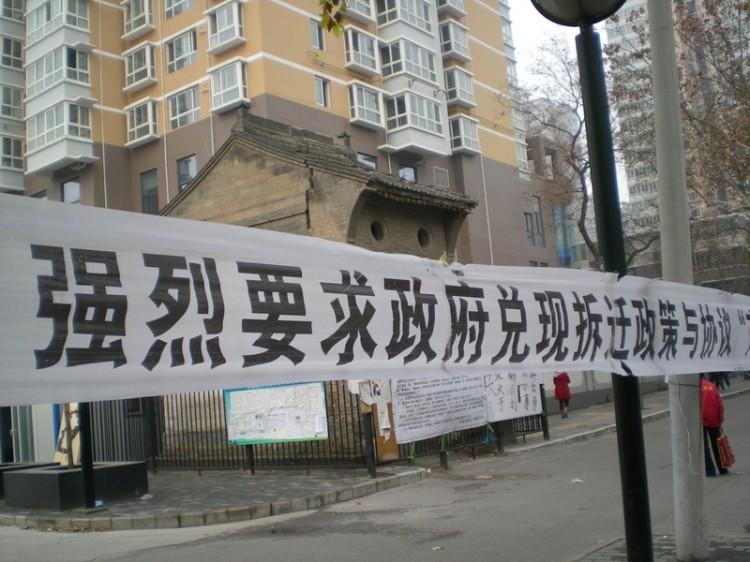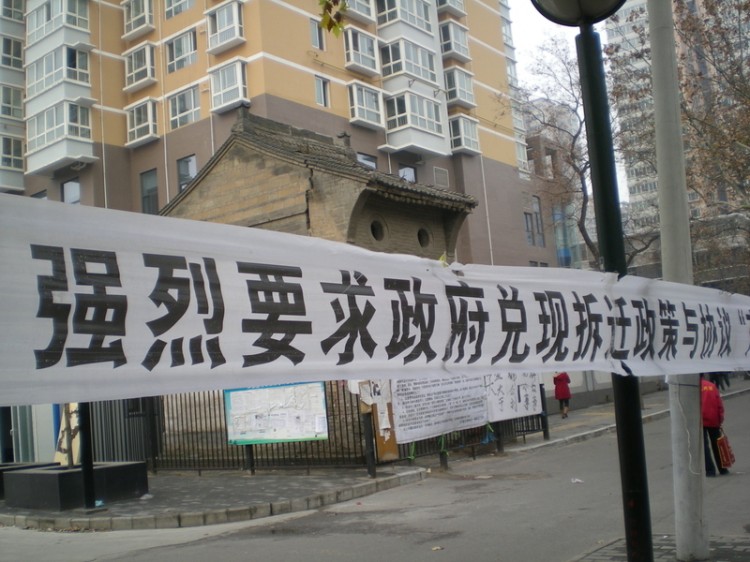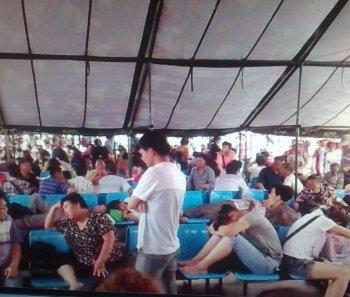It’s a story heard all over China: local authorities are tearing down people’s homes, selling the land to developers, and leaving citizens with empty promises of compensation, on the street, and enraged.
This happened to over 300 families in Renjiazhuang Village, Lianhu District, Xi'an City, Shanxi Province. Within two weeks, all the houses in the village were torn down in June 2008 under the local government’s “Shantytown Transformation” plan.
Authorities promised them that new houses would be built on the original sites to settle down 241 households in Renjiazhuang and 98 along Xibeiyi Road. Under the resettlement agreement, the new homes were to be the same size of the original ones.
But things didn’t turn out that way, according to the several hundred villagers who were protesting outside the local government offices on the morning of Dec. 9, who called it a “government gangster house swap deal.” They said they were given promises and tricked into giving up their homes, but the newly constructed houses fall far short of the agreement; they are much smaller, and the quality is also poor.
Problems started over a year ago. Xia Wenge, Renjiazhuang resident, said in Nov. 2010, villagers were notified that the newly constructed houses were larger than the original ones, and that they must pay 3,085 yuan (US$485) for each additional square meter. If they didn’t pay, they would be denied ownership to their house.
“Each household was forced to pay considerable sums ranging from 30,000 yuan to 300,000 yuan,” Xia said.
At that time, villagers wanted to take a look at the new houses, but security guards stopped them, he said.
On Aug. 28, villagers were notified by the Eviction Office to take possession of their new houses. That’s when they found that their new homes were much smaller than stipulated in the agreements and that the quality was also inferior to their previous homes.
Some villagers said their old houses had been passed down from their ancestors, and most were three or four-story buildings that had been rebuilt years ago using bricks and concrete.
Villagers also questioned why local authorities had marked the village as a shantytown.
One villager complained that the walls of the housing development were not painted, and there was no greenery. The corridors had no tiles, and there was water leaking in the bathrooms and corridors. There was also no fire protection engineering certificate or quality assessment certificate, he said.
Villagers said they had appealed several times outside the Lianhu District government regarding the poor construction quality, but no amends had been offered. Hopeless, villagers had blocked the roads three times to get attention.
One villager said: “Gangster-type behavior by the government has prolonged our poverty. So far, we victims of forced eviction have refused to accept the offered housing. We will continue to appeal, asking the government to adhere to their agreement.”
The Epoch Times called Zhang Qin, deputy head of the Lianhu District Shantytown Transformation, to inquire about the resettlement of the evicted families. The person answering the phone said Zhang Qin had been transferred to another unit and declined further comments.
Read the original Chinese Article.






